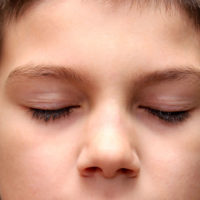Randomised Controlled Trial (RCT)
-

Low parental belongingness increases suicidal ideation risk
The Saving and Empowering Young Lives in Europe (SEYLE) randomized controlled trial (RCT) was originally established to evaluate the efficacy of three school-based interventions on preventing suicide in 11,000 adolescents.
Read more -

Help yourself (but get some support): meta-analysis of self-help interventions for children
We know that poor mental health in childhood is associated with poorer quality of life, increased likelihood of having a mental health disorder in adulthood and poorer occupational and social outcomes. We also know that there are numerous effective interventions for mental health problems, with over 750 treatment protocols for evidence-based psychological treatments in children. However, demand for treatment outstrips supply.
Read more -

Mindfulness-based interventions improve depression and anxiety outcomes in youths
In 2019, Darren Dunning and colleagues compiled a Research Review for the Journal of Child Psychology and Psychiatry in which they evaluated, for the first time, the efficacy of MBIs on cognition and mental health in adolescents <18 years-of-age.
Read more -

Neuroscientific insight can boost learning: neuro-fact or neuro-fiction?
Earlier this year, Professor Michael Thomas and colleagues compiled an Annual Research Review for the JCPP, highlighting the contributions that neuroscience can make to understanding learning and classroom teaching. Here, we summarise their main findings, the current challenges to the field and the future of educational neuroscience.
Read more -

Psychological interventions have a small but significant effect in young children with conduct disorder
In 2017, Mireille Bakker and colleagues performed a systematic review and meta-analysis for the Journal of Child Psychology and Psychiatry, of the currently available psychological treatments for children and adolescents with conduct disorder problems. Here, we summarise the researcher’s key findings and the potential clinical implications for this field.
Read more